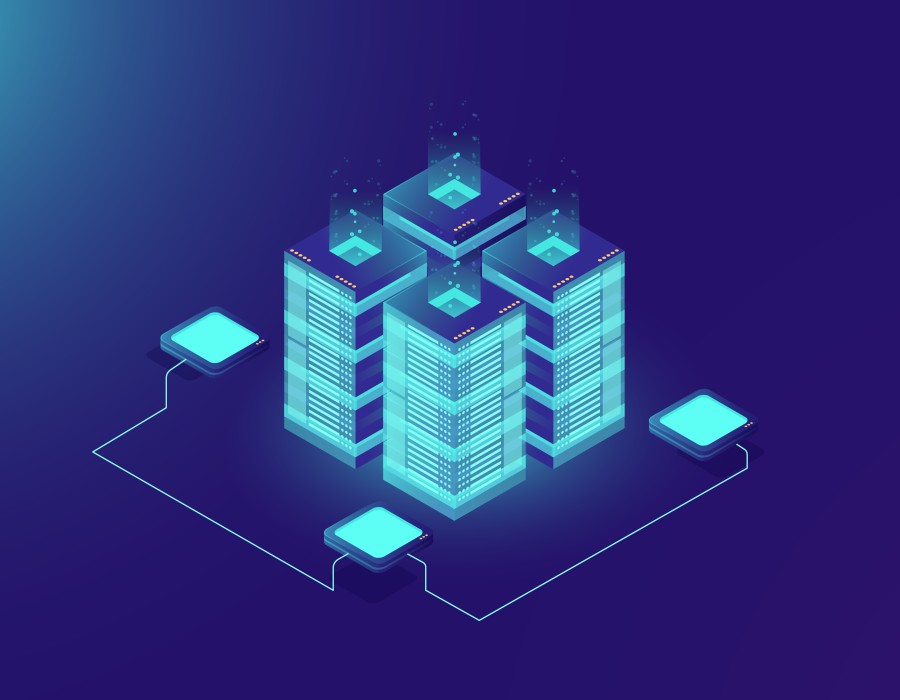Blockchain technology and the Internet of Things (IoT) are two cutting-edge innovations that have gained significant traction across various industries in recent years. While they serve distinct purposes, the integration of blockchain with IoT has the potential to revolutionize how devices communicate, transact, and maintain data integrity.
Benefits of Combining Blockchain and IoT
One of the primary advantages of merging blockchain and IoT is enhanced security. With blockchain's decentralized and immutable ledger, IoT devices can securely record transactions and interactions without the need for intermediaries. This ensures that data remains tamper-proof and resistant to unauthorized access.
Moreover, the combination of blockchain and IoT leads to increased transparency in processes and transactions. As every action is recorded on the blockchain, stakeholders can easily trace the history of data and verify its authenticity, fostering trust and accountability.
Furthermore, integrating blockchain with IoT can improve operational efficiency by streamlining processes, reducing redundancies, and automating tasks. This results in cost savings and enhanced productivity for businesses across various sectors.
Real-World Use Cases in Healthcare
In the healthcare industry, the marriage of blockchain and IoT offers numerous benefits, particularly in areas such as supply chain management, patient data management, and drug traceability. By leveraging blockchain technology, healthcare organizations can ensure the integrity and security of sensitive patient information while also facilitating the tracking and tracing of pharmaceuticals throughout the supply chain.
Applications in Supply Chain Management
Blockchain technology holds immense potential to revolutionize supply chain management across industries. By deploying blockchain-based solutions, companies can track and trace goods from the point of origin to the final destination, thereby enhancing transparency and reducing the risk of fraud or counterfeiting.
Utilization in Agriculture
The agriculture sector can also benefit greatly from the integration of blockchain and IoT. Through the use of IoT devices such as sensors and drones, farmers can monitor crop conditions in real time, optimizing resource allocation and improving yield. Additionally, blockchain enables transparent and traceable supply chains, ensuring food safety and quality for consumers.
Implementations in the Energy Sector
In the energy sector, blockchain and IoT can facilitate efficient grid management, enable peer-to-peer energy trading, and streamline equipment maintenance processes. By harnessing IoT sensors and blockchain technology, energy companies can optimize energy distribution, reduce wastage, and lower operational costs.
Adoption in the Automotive Industry
The automotive industry is another sector where blockchain and IoT are making significant inroads. From vehicle tracking and maintenance to secure data sharing among connected vehicles, blockchain-enabled IoT solutions can enhance safety, efficiency, and convenience for both manufacturers and consumers.
Usage in Retail
Retailers can leverage blockchain and IoT to improve inventory management, implement customer loyalty programs, and combat counterfeit goods. By integrating IoT sensors with blockchain technology, retailers can monitor product movements in real-time and verify the authenticity of products, thereby enhancing consumer trust and brand reputation.
Challenges and Future Outlook
Despite the promising potential of blockchain for IoT applications, several challenges remain, including scalability issues, interoperability concerns, and regulatory hurdles. However, ongoing research and development efforts aim to address these challenges and unlock the full potential of blockchain-enabled IoT solutions.
Conclusion
In conclusion, the integration of blockchain and IoT holds immense promise for transforming various industries, including healthcare, supply chain management, agriculture, energy, automotive, and retail. By leveraging the combined strengths of these technologies, businesses can enhance security, transparency, efficiency, and trust in their operations, paving the way for a more connected and decentralized future.
FAQs
Q. What are some key benefits of combining blockchain and IoT?
- Enhanced security, increased transparency, improved efficiency, and cost reduction are among the primary advantages of integrating blockchain with IoT.
Q. How does blockchain technology benefit the healthcare industry?
- Blockchain technology can facilitate secure patient data management, traceability of pharmaceuticals, and transparency in supply chain operations within the healthcare sector.
Q. What challenges does the adoption of blockchain for IoT face?
- Challenges such as scalability issues, interoperability concerns, and regulatory hurdles pose significant obstacles to the widespread adoption of blockchain-enabled IoT solutions.
Q. What real-world applications exist for blockchain and IoT in the energy sector?
- In the energy sector, blockchain and IoT can be utilized for grid management, peer-to-peer energy trading, and equipment maintenance, among other applications.
Q. How can blockchain and IoT improve supply chain management in retail?
- By enabling transparent and traceable supply chains, blockchain and IoT technologies can help retailers enhance inventory management, implement loyalty programs, and combat counterfeit goods.





Comments